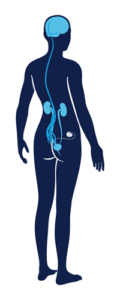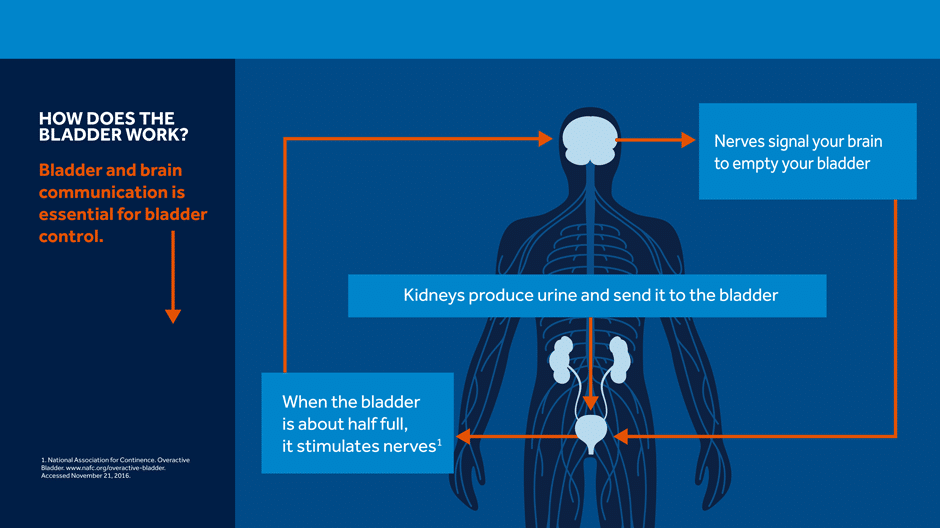
Did you know that incontinence can be caused by miscommunication between the brain and bladder?
What is an overactive bladder (OAB)?
If you find yourself urinating more frequently than usual, you may have an overactive bladder (OAB). This urological condition is the urgent and frequent need to pass urine, which is something that nearly 38 million people across the United States live with on a daily basis. The condition is not a part of the aging process, meaning, it’s not something you should “just have to live with.”

What are the signs and symptoms?
- The urgent need to urinate
- Urinating more than eight times in a day
- Planning activities around the location of the nearest bathroom
- Monitoring your liquid intake
- Using pads to control leaks

What can cause an overactive bladder (OAB)?

- Daily habits, including what you eat and drink
- Medications or supplements you take
- Reduced physical mobility
- Pregnancy, childbirth, radiation or pelvic floor injury
What are ways to treat OAB?
Lifestyle Changes
- Diet
- Exercise
- Bladder retraining (biofeedback)
- Pelvic floor strengthening (Kegels)
Oral Medication
Oral medication can control the symptoms but can cause other issues like dry mouth, constipation or hypertension. It’s important to get diagnosed to know if this treatment is right for you.
Advanced Therapies
Injected medications such as Botox
Botox is administered by being injected into multiple areas of the bladder muscle through a needle. The injections are comparable to oral medications and can temporarily treat OAB but may raise other concerns. The injected medications do not address the bladder/brain communication and can create a potential need to self-catheterize.
Medtronic InterStim™ System
This therapy operates by gently stimulating the nerve to correct the communication pathway between the brain and bladder to restore a normal function. The therapy system offers you the opportunity to do a test. If you decide to move forward after the test, a small implant is placed just below the skin in your upper buttock.

Additional Resources
Treatment Options for Overactive Bladder, Urinary Retention and Bowel Incontinence
If you have questions or want to schedule an appointment, please call 918-393-3303.
Meet your physician: Melanie Ketchandji, M.D.

